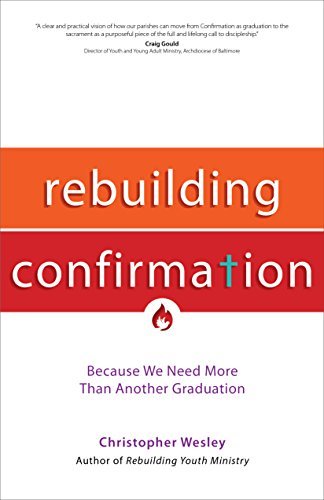What do you think?
Rate this book


You will learn:
How to create a Confirmation program that is anchored by small groups and parish-selected mentors; Practical solutions to systemic problems such as having an unclear purpose and treating preparation for the sacrament as just more schooling; How to recruit and train adult volunteers; How to work with parents and win their support; How to screen and select Confirmation candidates who are truly ready to commit; and How to advocate for your program and youth within the wider parish community.Wesley offers fixes for the structures and habits that fail youth in many Catholic parishes, shares his own successes and failures, and provides great ideas and practical tools to help the newly confirmed set a course for their future in the Church.
129 pages, Kindle Edition
Published February 10, 2017